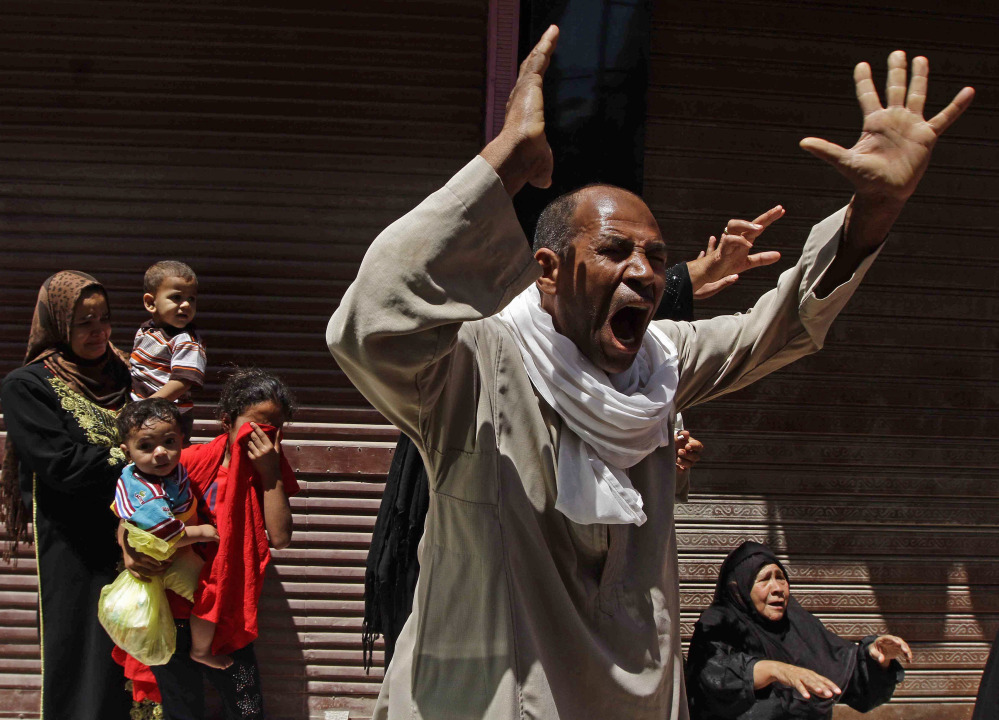MINYA, Egypt — The Muslim Brotherhood’s spiritual leader and more than 180 others were sentenced to death Saturday by an Egyptian court in the latest mass trial following last year’s overthrow of the country’s Islamist president.
The ruling by the southern Minya Criminal Court is the largest confirmed mass death sentence to be handed down in Egypt in recent memory and comes from Judge Said Youssef, who earlier presided over the mass trial. It is the second death sentence for the Brotherhood’s Supreme Guide Mohammed Badie since the crackdown against his group began.
The court acquitted more than 400 others in the case and family members of the accused wailed or cheered the verdicts.
The case stems from an attack on a police station in the town of el-Adwa near the southern city of Minya on Aug. 14 which killed one police officer and one civilian. Similar revenge attacks swept across Egypt following a security force crackdown on Cairo sit-ins supporting toppled President Mohammed Morsi that killed hundreds. Charges in the case ranged from murder, joining a terrorist organization, sabotage, possession of weapons and terrorizing civilians.
Initially, Youssef sentenced some 683 people to death over the attack, then sent the case to Egypt’s Grand Mufti, the country’s top spiritual leader. The Mufti offered his opinion, then sent the case back to Youssef to confirm his sentence.
Lawyers for the accused said they planned to appeal. Of the initial 683, all but 110 were tried in absentia, a defense lawyer said, meaning they will receive new trials once apprehended as guaranteed by Egyptian law.
The mass trials have drawn worldwide rebuke. However, the trials have continued with many Egyptians appearing to approve of the heavy-handed measures as a way to end the turmoil roiling their country since its 2011 revolt against autocrat Hosni Mubarak.
Amnesty International described the ruling as one more “alarming sign of the Egyptian judiciary’s increasing politicization,” especially with “notable spike” in death sentences.
New-York based Human Rights Watch called the verdict a travesty of justice. “The punishments are deadly serious, but the trials weren’t,” said Joe Stork, deputy Middle East and North Africa director at HRW.
Send questions/comments to the editors.



Success. Please wait for the page to reload. If the page does not reload within 5 seconds, please refresh the page.
Enter your email and password to access comments.
Hi, to comment on stories you must . This profile is in addition to your subscription and website login.
Already have a commenting profile? .
Invalid username/password.
Please check your email to confirm and complete your registration.
Only subscribers are eligible to post comments. Please subscribe or login first for digital access. Here’s why.
Use the form below to reset your password. When you've submitted your account email, we will send an email with a reset code.